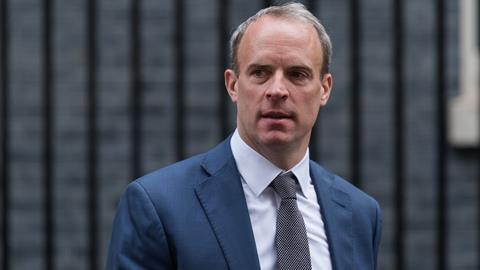Lord chancellor Dominic Raab has rejected criticisms of the proposed Bill of Rights from seven United Nations human rights experts, saying they are based on a 'flawed understanding'.
The letter, from special rapporteurs to the UN high commissioner for human rights on topics ranging from judicial independence to abritrary executions and human trafficking, says that the Bill of Rights as published would rebalance ‘in a concerning manner’ the relationship between UK courts, the European Court of Human Rights and parliament.
'In particular [the bill] would fundamentally change the role and independence of UK courts by establishing a list of considerations and restrictions that UK courts must apply when adjudicating and interpreting the rights established in the European Convention on Human Rights (ECHR),’ the seven-page letter states.
Among criticisms are that the bill introduces a form of ‘originalism’ into interpretations of the ECHR and that it restrains the ability of UK courts to impose positive human rights obligations onto public authorities. Meanwhile, a measure giving ‘great weight’ to the importance of free speech could ‘weaken judicial independence’ and 'undermine the principle that all rights are indivisible and interdependent'.
The bill’s proposed ‘permission stage’ for human rights proceedings 'limits the normal and well-established gatekeeping role and function of UK courts', the letter states.
The rapporteurs also express concern that the bill may impinge on the right to equality before the court 'by stipulating provisions that apply only to certain groups, namely persons serving custodial sentences and foreign criminals subject to deportation proceedings'.
The letter asks the government to explain how the proposed legislation complies with the UK’s international human rights undertakings, especially its obligations under the Universal Declaration on Human Rights.
In a provisional response, Raab said: 'We don’t accept these criticisms, which rest on a flawed understanding of the UK tradition of liberty, the importance of a clearer separation of powers, and the proper role of elected members of parliament in determining any expansion in the scope of rights. We will be responding robustly in due course.'
The Bill of Rights is due to have its second reading in the House of Commons next month. Current members of the UN Human Rights Council, which opens its 51st session next month, include China, Cuba, Eritrea and Qatar, along with the UK.
This article is now closed for comment.




























15 Readers' comments